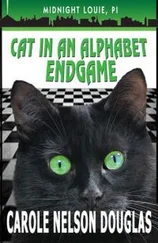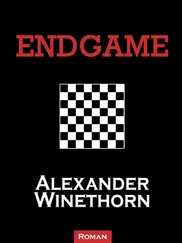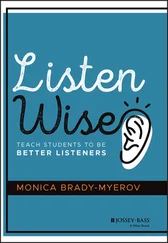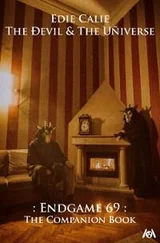
From the time he was six until he was about twelve, Bobby spent almost every summer at camp somewhere in the tri-state area around New York City. That first or second summer, at a camp in Patchogue, Long Island, he found a book of annotated chess games. When he was pushed to remember the book’s title some fifteen years later, Bobby said that it might have been Tarrasch’s Best Games of Chess . He then named Siegbert Tarrasch, a German player, as “one of the ten greatest masters of all time.” Whatever the book was, Bobby figured out how to follow the games, which were presented move by move using descriptive chess notations (e.g., P–K4 for “Pawn to King Four”).
The rest of camp was occasionally fun. Bobby rode a horse named Chub, played with a black-and-white calf, engaged in an occasional softball game, and made a boat in the arts-and-crafts class—but he still couldn’t relate to the other children. After a full month away, using one of the pre-addressed and stamped postcards given to him by Regina, he issued a plaintive appeal in large block letters: MOMMY I WANT TO COME HOME.
Soon after, Bobby forgot about chess for a while. Other games and puzzles entered the household, and the chess set, with some pawns missing, was stored in a closet. After about a year, however, chess reentered his mind. In the winter of 1950, when he was seven years old, he asked Regina if she’d buy him another, larger chess set for Christmas. She bought him a smallish, unweighted wooden set that was housed in a sliding, unvarnished wooden box. Although Bobby immediately opened his gift, he didn’t touch it for about a month. He had no one to play with.
He was often alone. When he came home from school, it was usually to an empty apartment. His mother was at work during the days and sometimes in the evenings, and his sister was generally busy in school until later in the afternoon. Though Regina was concerned about her son, the simple truth was that Bobby was a latchkey child who craved but was not given the maternal presence that might have helped him develop a sense of security. Moreover, Regina’s financial circumstances had caused the family to move so frequently that Bobby never gained a sense of “neighborhood.” And it didn’t help that there was no father present.
Regina tried giving her son the approval that every child needs, and the wings to find himself, by encouraging him to engage in sports, take part in family excursions, and do better in school. But as time went on, Bobby just kept journeying more and more into himself, once again reading chess books and playing over games from the past. The possibilities of chess somehow made his essential loneliness and insecurity less painful.
Regina believed that she could learn and excel at anything, except perhaps chess, and that her children also had the capacity to master anything. The social workers that she confided in invariably suggested that she enroll Bobby in a small private school where he could receive closer attention and where he could develop at his own pace. Money was always an issue for her though, and she couldn’t afford to enroll him in a school that demanded tuition. She received no child payment or alimony from Hans Gerhardt Fischer, but she did receive occasional checks for $20—not totally insignificant in those years—that arrived sporadically but often weekly, sent by Paul Nemenyi—like Gerhardt Fischer, a physicist. Nemenyi was a friend whom Regina had first met when she was a student at the University of Colorado in Denver and then later reconnected with in Chicago. He may have been Bobby’s biological father. The patrimony has never been proven one way or the other. Regina not only denied that Nemenyi was Bobby’s father, but once stated for the record to a social worker that she’d traveled to Mexico in June 1942 to meet her ex-husband Hans Gerhardt, and that Bobby was conceived during that rendezvous. However, a distant relative of Bobby’s suggested that the reason Regina listed Hans Gerhardt as the father on Bobby’s birth certificate was that she didn’t want Bobby to be known as a bastard. “It does appear that Paul Nemenyi was the real father,” the relative said. It’s also possible that Regina didn’t know who Bobby’s father was if she was having an affair with Nemenyi around the time the Mexican assignation with Gerhardt Fischer occurred.

In an attempt to find other boys who might want to play with Bobby, Regina wrote to the chess editor of the Brooklyn Eagle to see if he knew of any seven-year-old players. She referred to her son as “my little chess miracle.” The editor, Hermann Helms, a great old chess master, replied that she should bring Bobby to the Grand Army Plaza library on a particular Thursday evening in January 1951, so that the boy could play in a simultaneous exhibition to be given by several chess masters.
Normally, a simultaneous exhibition is given by one master who walks from board to board, competing against multiple players. The boards are arranged in the shape of a square or horseshoe. When the master reaches each of the boards, the player makes his move and the master responds before quickly moving to the next board.
Bobby, accompanied by his mother, entered the high-ceilinged rotunda of the Grand Army Plaza library and was momentarily surprised by what he saw. Circling the room were locked glass cases displaying unusual and historic chess sets, loaned to the library from private collectors for the occasion. The cases also contained a variety of popular chess books and some incunabula printed in German. There was a ceramic set of chessmen inspired by Tenniel’s illustrations of Alice’s Adventures in Wonderland; two sets from displaced persons’ camps, one carved by hand and another made of woven straw; each set had taken more than five hundred hours of work to produce; and a set from Guatemala that was reminiscent of pre–Spanish New World architecture. This was all quite fascinating for the general spectator, but Bobby Fischer hadn’t come to look at chess sets. “They did not interest me too much,” he remembered. He’d come to play.
On that evening masters were performing in rotation, one playing for about an hour, followed by another who’d take his place. When Bobby sat down to play with his own new wooden set, the master who came to his board was Max Pavey, a thirty-two-year-old radiologist who’d been champion of both Scotland and New York State and who was playing at the top of his form. Pavey was the first master Bobby ever played. It’s also likely this was his first serious game of chess against a player with tutored expertise. What was occurring at that moment was analogous to a seven-year-old playing a few games of tennis with his peers, then taking to the court against a still-active John McEnroe.
A crowd of spectators gathered around the board as the diminutive Bobby faced the self-assured, tweed-jacketed Max Pavey. The boy was so serious about what he was doing that the game attracted more and more onlookers. He kneeled on his chair to get a more panoramic view of the pieces.
Bobby remembered his experience in solving puzzles. He must not move too quickly; he knew that the solution was there waiting to be found, if only he had time, time, more time. Pavey, who excelled at playing rapidly—he’d recently captured the title of U.S. Speed Chess Champion—seemed to zoom around the room hardly studying the other boards as he made his moves, returning to Bobby’s game in such a short time that the child couldn’t calculate as deeply or as carefully as he wanted. That night there were only eight players, making it more difficult for each to contend with the master than if there’d been scores of players, who would have slowed Pavey’s progress.
Читать дальше
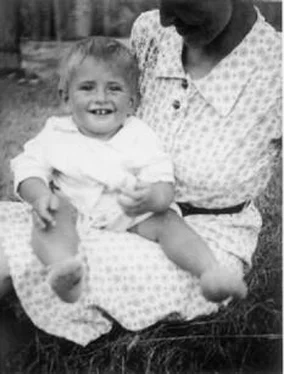


![Антон Текшин - EndGame [СИ]](/books/394477/anton-tekshin-endgame-si-thumb.webp)
